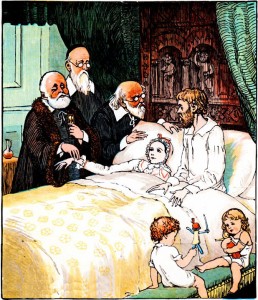Vocal Hoarseness Speech Therapy?
One question I quite frequently get in my practice as a speech-language pathologist is how to deal with vocal hoarseness or raspiness — is there vocal hoarseness speech therapy? Getting a “raspy voice” is incredibly common in both children and adults. I’m sure the reader has experienced this multiple times in his or her life. At times vocal hoarseness or raspiness is temporary and something you can easily attribute to excess shouting at say a sporting event or a viral infection; in other cases, the cause is mysterious. Also, sometimes the hoarseness and raspiness can be temporary and responsive to the vocal hygiene strategies discussed below. In other cases, the hoarseness or raspiness is chronic and in need of attention from an experienced speech-language pathologist with knowledge of voice disorders and/or an ear-nose-throat (ENT) doctor. This post is intended to give you a sense of how you would potentially manage such vocal hoarseness or raspiness.
How Long Has This Been Going On?
As with anything body-related, the first question is ask yourself is: how long has this vocal hoarseness or raspiness been going on? If it came on suddenly two days ago, that’s probably not enough time to consider it an issue at all. If it has been going on for 2-4 weeks at least, this could be considered chronic and in need of attention. However, you need not wait 2-4 weeks to address voice hoarseness. As soon as you notice hoarseness in yourself or in your child, you can implement vocal hygiene strategies.
Vocal Hygiene
The first mantra of vocal hygiene is vocal rest. So, if your voice is hoarse, simply reduce the amount you’re using your vocal cords. In adults, this is pretty straightforward unless your job heavily relies on your vocal, as in if you’re a teacher or newscaster. But in kids, you will want to use rewards for using the voice less often and not shouting and closely monitor their voice use. Tell your child his or her voice needs rest and tell them if his or her voice is used less, it will soon sound better.
Next, drink water! With very mild hoarseness you can often notice a near immediate improvement in your voice after drinking say a cup or two of water. Be disciplined with this and when in doubt, drink more water! With children again, institute rewards for drinking water and — this is totally your call as a parent — allow a couple extra ounces of very diluted juice on top of your child’s daily juice ration. I know juice is super sugary but a couple extra ounces of juice to flavor a lot of extra water can go a very long way to increasing your child’s fluid intake.
Also, avoid alcohol and caffeine. Obviously, this only applies to adults with hoarseness — I assume your child is already avoiding caffeine and alcohol! But, these substances are known diuretics and can directly contribute to vocal hoarseness.
When to See a Doctor (ENT)
 Again, this is totally personal choice: some people rush to the doctor at the absolute first sign of any health irregularity and others haven’t gotten even a check up in ten years. In general, if voice hoarseness persists for more than 2 weeks, it is at least worth putting in a call to your child’s pediatrician or to your general practitioner. If hoarseness is extreme and/or accompanied by vocal struggles or discomfort or pain, a visit to the doctor is warranted. In order to really find out what’s going on, a doctor may have to run a scope into your or your child’s throat to see how the vocal cords look. There could be vocal nodules, which are like blisters on your vocal cords and indicate vocal abuse. Very rarely, vocal issues indicate a much more serious health issue. So trust your own tolerance for hoarseness but rest assured that if you feel something isn’t right, there are local ENTs available to rule out anything serious and to help get you or your child on the path to an effective treatment.
Again, this is totally personal choice: some people rush to the doctor at the absolute first sign of any health irregularity and others haven’t gotten even a check up in ten years. In general, if voice hoarseness persists for more than 2 weeks, it is at least worth putting in a call to your child’s pediatrician or to your general practitioner. If hoarseness is extreme and/or accompanied by vocal struggles or discomfort or pain, a visit to the doctor is warranted. In order to really find out what’s going on, a doctor may have to run a scope into your or your child’s throat to see how the vocal cords look. There could be vocal nodules, which are like blisters on your vocal cords and indicate vocal abuse. Very rarely, vocal issues indicate a much more serious health issue. So trust your own tolerance for hoarseness but rest assured that if you feel something isn’t right, there are local ENTs available to rule out anything serious and to help get you or your child on the path to an effective treatment.
How a Speech Pathologist Comes In
Two recent clients of mine illustrate the value of speech pathologists to vocal health. One client, an eleven year-old named Chris (not his real name of course) came to me after seeing an ENT doctor. This doctor scoped my client and determined that there was nothing physically wrong with his vocal cords. After evaluating him, I saw that he showed extreme muscle tension in his neck, which meant he was essentially slamming his vocal cords together.
The vocal hygiene strategies listed above helped him, but it was this direct work reducing the muscle tension in his neck that was the difference for him. Another client I evaluated not long ago, a seven year-old name Benny (also not his real name), presented with a very hoarse voice. His mother said this had been going on for some time and I recommended he get scoped by an experienced pediatric ENT. This evaluation found many vocal nodules, or those blisters as well as pretty severe acid reflux. His doctor thought this acid reflux was the main cause of the injury to the vocal cords and was, in turn, the cause of his hoarseness. After using vocal hygiene strategies and having this severe acid reflux managed via prescription medication, his vocal hoarseness cleared up.
 The bottom line is that, in many cases, vocal hygiene strategies
The bottom line is that, in many cases, vocal hygiene strategies
- drinking more fluids,
- resting your vocal cords
- and avoiding alcohol and caffeine
are all you need to see a quick reduction in hoarseness. If you’re a professional who uses his or her voice a lot for work (e.g. a singer or teacher), managing the strain on your voice is often best done with an experience speech pathologist. You can always use Speech Buddies Connect to locate a great speech pathologist in your area. However, if this hoarseness persists for more than two weeks and/or presents with discomfort or pain, a visit to a local ENT doctor is probably the best plan of action.
Rest assured that hoarseness is extremely common and often quite straightforward to treat!



